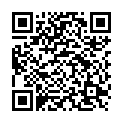|
|
|
| Module code: MBG21-9 |
|
|
3V+2U (5 hours per week, accumulated) |
|
7 |
| Semester: 2 |
| Duration: 2 semester |
| Mandatory course: yes |
Language of instruction:
German |
Assessment:
Exam achievement
[updated 15.11.2021]
|
MBG21-9 (P311-0188) Management and Professional Pedagogy in Health Care, Bachelor, ASPO 01.10.2021
, semester 2, mandatory course
|
75 class hours (= 56.25 clock hours) over a 15-week period.
The total student study time is 210 hours (equivalent to 7 ECTS credits).
There are therefore 153.75 hours available for class preparation and follow-up work and exam preparation.
|
Recommended prerequisites (modules):
MBG21-1 Academic Methodologies and Study Skills I
[updated 12.10.2023]
|
Recommended as prerequisite for:
MBG21-15 Evidence-Based Medical Care and Nursing
MBG21-16 Study Project
MBG21-19 Academic Methodologies and Study Skills III
MBG21.S.32 Reviews and Guidelines
MBG21.S.33 Evaluation
[updated 27.03.2025]
|
Module coordinator:
Prof. Dr. Dagmar Renaud |
Lecturer:
Dr. Sindy Lautenschläger
[updated 12.10.2023]
|
Learning outcomes:
Qualitative Methods:
After successfully completing this module, students will have the following skills and competencies:
.
Knowledge and Comprehension:
Students will be able to describe the basic principles of qualitative social research.
They will be able to describe all of the procedures and methods required for the qualitative research process (formulation of qualitative research questions, research designs, research methodologies, inclusion and exclusion criteria, data collection, ethical aspects, data analysis).
They will be familiar with the criteria for critically evaluating qualitative research.
The Use, Application, and Generation of Knowledge:
Students will be able to derive a qualitative research question based on problems or questions from professional practice.
They will be able to justify their choice of procedures and methods for answering a specific research question within the qualitative research process.
They will be able to conduct an interview within the group process of teaching and hone their methodological interviewing skills.
They will be able to critically evaluate a qualitative research paper using appropriate criteria.
Communication and Cooperation:
Students will be able to contribute constructively to the group learning process.
They will demonstrate tolerance for other viewpoints and perspectives.
Scientific Self-Concept/Professionalism:
Students will be able to critically reflect on their own learning progress.
They will be able to critically reflect on research ethics in the context of the qualitative research process.
They will be willing to scientifically address application-oriented research questions from practice and take research results into account in future professional activities.
Qualitative research process exercise
After successfully completing this module, students will have the following skills and competencies:
.
The Use, Application, and Generation of Knowledge:
Students will be able to derive qualitative research questions based on problems or questions from professional practice and will have improved their basic research methodological skills.
They will be able to apply qualitative research methods and analysis techniques.
They will be able to present and explain their research findings.
Communication and Cooperation:
Students will be able to communicate and collaborate with peers and as part of an interdisciplinary team in order to answer a research question.
Students will be able to contribute constructively to the group learning process.
They will demonstrate tolerance for other viewpoints and perspectives.
Scientific Self-Concept/Professionalism:
Students will be able to justify their actions in response to their research question using theoretical and methodological knowledge.
They will be able to critically reflect on their own learning progress.
They will be able to critically reflect on research ethics in the context of the qualitative research process.
[updated 15.11.2021]
|
Module content:
Qualitative Methods:
1. Development and justification of qualitative social research
2. Qualitative versus quantitative methods; indication, relevance, results, scope
3. An overview of scientific-theoretical and methodological principles, concepts and approaches of qualitative procedures (Interpretative sociology, phenomenology, symbolic interactionism, ethnology)
4.
Qualitative research methodologies (e.g., grounded theory, objective hermeneutics, phenomenology, ethnomethodology).
5.
Empirical-qualitative research process: prerequisites, procedures, evaluation, implementation
6. Data collection and evaluation: relevant interview procedures, forms of observation, coding, content analysis and computer-aided data analysis
7.
Quality criteria of qualitative research
8. Research results: Evaluation, presentation, publication; transfering research results into professional practice
Qualitative research process exercise
1. Formulating research questions
2. Creating an interview guide or observation sheet
3. Conducting an interview or observation
4. Exemplary data analysis of a case using a selected analysis technique
[updated 15.11.2021]
|
Teaching methods/Media:
Blended learning
[updated 15.11.2021]
|
Recommended or required reading:
Recommended literature will be announced at the beginning of the course.
[updated 15.11.2021]
|

